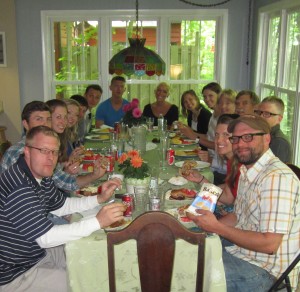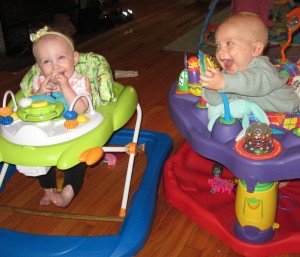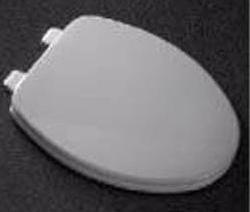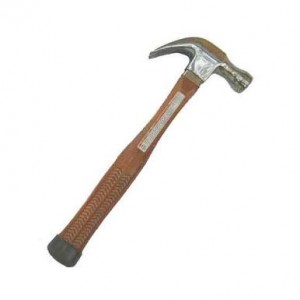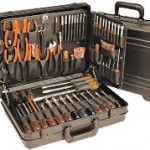Emerald loves to help in the kitchen. Never mind that she’s only 7 months old. When I cut up my stir-fry veggies, she likes to sit in her Bumbo on the counter next to me, banging the broccoli against the counter-top or washing the pea pods with her drool.
If I’m holding her when I open the refrigerator, she lunges toward its contents, fascinated by the variety of colors and shapes inside. This afternoon I decided she could help as I put food away and set her Bumbo in front of the fruit and veggie drawers. She happily banged them open and closed, sucked on the bag of mini-carrots, and rattled the salad dressing bottles overhead.
No doubt Emerald thinks of herself as wonderfully capable and wonders why she isn’t allowed to do everything the rest of us do. But of course there are several problems. She’s inexperienced, unqualified, and incapable. None of that stops her, though, from wanting to try.
When our Louisa began learning to put words together, one of her first (and oft-repeated) sentences was, “I wanna do-it!”
At age two, she wanted to accomplish things with skills she thought she had but didn’t. We all saw the disparity, but of course she couldn’t understand. Her desire was strong, and when we wouldn’t let her try something we knew she couldn’t handle, her objections were loud and long. But having a big dose of want-to isn’t enough to accomplish something beyond our capabilities.
How many times do we adults proceed just like baby Emerald or toddler Louisa, ill-equipped to handle a task but diving into it anyway? We think, “Somehow it’ll all work out in the end.” And when it doesn’t, we end up more frustrated than at the beginning.
Scripture says we should count the cost before starting any endeavor, and if we aren’t able to pay the necessary price, we shouldn’t start. This can be a discouraging place to be as we’re forced to wait before taking action, but what we can do while we’re waiting is work to become fit for the undertaking.
I think of the way God works in people’s lives and know we should imitate that. He usually takes his time putting all the pieces in place before unveiling his plans for us. That’s why it seems so long between our prayer requests and his answers. He doesn’t rush to get things completed in a hurry, and he never panics, but instead proceeds in an orderly way. We should determine to do the same, programming planning-pauses into our lives.
Baby Emerald will gain in skill as she gains in months, and toddler-Louisa has grown into a capable young adult. But all of us have to learn (one way or another) that when we “wanna do it right now,” our timing could very well be off.
And if we need to talk it over with someone who understands, Emerald is usually available.
“Hope that is seen is no hope at all. Who hopes for what they already have? But if we hope for what we do not yet have, we wait for it patiently.” (Romans 8:24-25)



